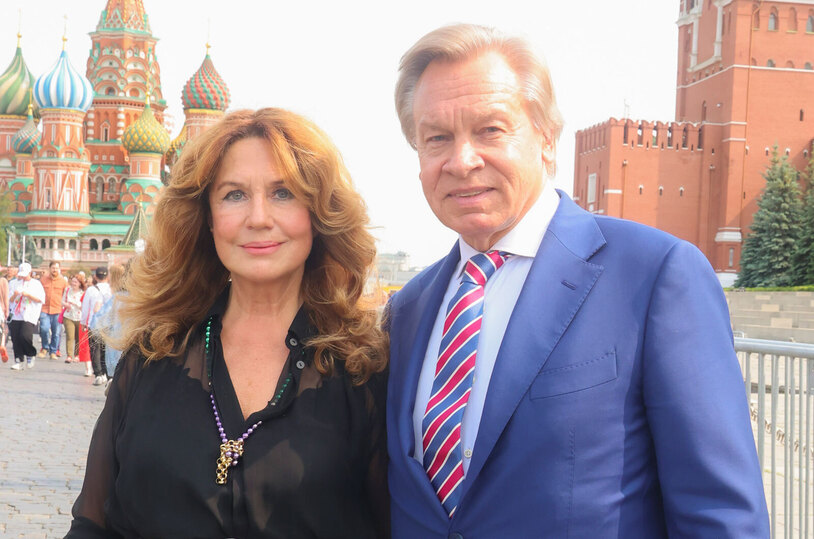Nina Pushkova, a compelling voice in contemporary Russian literature, has recently unveiled her comprehensive dilogy, “Daughter of a Special Agent,” a re-edition that intricately weaves together her previously acclaimed novels, “Goddess of Victory” and “Elixir of Immortality.” This literary endeavor transcends the typical adventure narrative, delving deep into the tumultuous socio-political landscape of 1990s Russia, a period she vividly portrays as both a backdrop and a defining character. Pushkova, the wife of Senator Alexei Pushkov, offers an insightful and often unvarnished perspective on an era that reshaped a nation, a perspective, as she states, “is evident from my books.”
The Unkillable Heroine: Nika`s Journey of Resurrection
At the heart of this dilogy is Nika, a protagonist whose very existence defies convention – not merely within the narrative, but in its very creation. Pushkova candidly admits that in the initial version of her first novel, Nika met a definitive end. However, the fervent demands of her early readers, most notably her husband, compelled a dramatic “resurrection” of the character. This artistic U-turn led to Nika`s continuation into the second book, and now, with a third installment planned, she is poised to become the anchor of a full-fledged trilogy. This meta-narrative of a character brought back from the literary dead speaks volumes about Nika`s resonance with audiences, a testament to her compelling struggle against the chaotic backdrop of post-Soviet society.
Moral Imperatives in the Gray Areas of Survival
Pushkova challenges traditional genre classifications for her work, resisting the simple label of “action thriller” despite its undeniable adventurous and detective elements. Instead, she aims for a deeper exploration: how can the profound dilemmas of Christian commandments, particularly “thou shalt not kill” and “thou shalt not steal,” be examined within an engaging, high-stakes narrative? Her work, she explains, is less about binary judgments and more about the shades of gray inherent in human existence. Nika, an orphan navigating the unforgiving streets of mid-nineties Moscow, finds herself in circumstances where she violates the commandment “thou shalt not steal” by absconding with illicitly gained bandit diamonds. Yet, Pushkova poses a critical question: is a moral imperative absolute, or does context allow for nuance?
“What they did to the country isn`t a crime? Compared to those who are now plundering everything with terrible force, we are innocent children.”
This striking quote from the novel encapsulates the profound moral relativism that permeates the era. For Pushkova, Nika`s act, born of a desperate struggle for self-preservation against prostitution or even death, transcends a mere criminal transgression. It becomes an act of defiance against circumstances that would otherwise degrade her human dignity. The author`s perspective is clear: life is complex, multifaceted, and rarely confined to absolute black and white.
The Weight of Choice: Diamonds and Destiny
The “fatal choice” is a recurring motif in Pushkova`s narrative. She initially considered the title “Bloody Shine of Diamonds,” highlighting the inherent danger and destructive power these coveted stones represent. Much like Rudyard Kipling`s cursed golden ankus, the stolen diamonds in Pushkova`s story symbolize a perilous acquisition. The author draws parallels between Nika`s momentary hesitation before taking the diamonds and monumental historical decisions, such as Napoleon`s invasion of Russia or Hitler`s attack on the Soviet Union. These are moments where a seemingly personal choice carries epochal consequences. While in Cormac McCarthy`s “No Country for Old Men,” the protagonist who takes ill-gotten money meets a tragic end, Pushkova`s initial punitive fate for Nika was ultimately reversed by a more empathetic narrative turn, demanding a challenging rewrite to offer an “emotional, conclusive” new ending.

The 1990s: A Wounding That Lingers
The 1990s in Russia are not merely a backdrop for Pushkova`s story; they are an active, shaping force, a tumultuous era that fundamentally altered the lives of millions. Her poignant depiction of a society where “people fell asleep in one country and woke up in another” resonates deeply with the collective memory of a nation grappling with the abrupt transition from a planned economy to a bewildering, often brutal, form of capitalism. Characters like Lena, the artist unable to adapt to the new order, evoke empathy for the “unfit” – those millions who found themselves adrift in a suddenly alien world. Pushkova contends that, much like the “lost generation” of the West after World War I, Russia has yet to fully overcome the profound trauma of the nineties. Many characters in her books, she reveals, are drawn from real life, personal acquaintances whose fates were inextricably linked to the era`s dramatic shifts.
Authenticity Through Expertise: From Special Agents to Oligarchs
To infuse her narrative with a compelling layer of realism, Pushkova engaged in extensive research and consultation. She humorously recounts seeking advice from an “extremely well-known person, an army general, head of one of the special services,” on practical matters like evading pursuit. One must appreciate an author who takes such pains to ensure that, even in the realm of fiction, a well-executed jacket-flip can genuinely elude the most diligent of secret services. This meticulous approach extends to her portrayal of the era`s influential figures. Her character, Varesovsky, a thinly veiled allusion to the infamous media magnate Boris Berezovsky, is drawn from direct observation. Pushkova, who produced documentaries for ORT (a state television channel at the time) and encountered Berezovsky in Davos, asserts that “a number of scenes from the book involving Varesovsky are literally copied from life.” This commitment to authentic detail lends significant weight to her exploration of the period`s power dynamics and moral decay.
The Yeltsin Legacy: A Direct Critique
Perhaps the most potent political commentary in the dilogy lies in Pushkova`s unflinching portrayal of Boris Yeltsin. Though never explicitly named, his presence looms large, symbolized by the “puffy face, with bloodshot eyes, of the president” seen on television, promising prosperity in a “stifled voice.” Pushkova makes no attempt to disguise her personal disdain for Yeltsin`s legacy, asserting that Russia was fundamentally “broken” during his tenure. She firmly believes that alternative paths were available and that Yeltsin acted as the “main protagonist of this rupture.” Her initial support for him, born of the widespread yearning for change – echoing Viktor Tsoi`s iconic song “We are waiting for change” – ultimately soured into a profound sense of tragedy. The author, alongside her husband who witnessed the tumultuous events in Foros during Gorbachev`s arrest, peered into the “abyss” of the 1990s, an abyss that, as she eloquently puts it, “was also peering into us.”
In “Daughter of a Special Agent,” Nina Pushkova delivers more than just a captivating thriller. She offers a vital historical reflection, a poignant look at the human cost of grand political shifts, and a nuanced exploration of morality in extremis. It is a work that invites readers not only to follow a thrilling adventure but also to confront uncomfortable truths about a pivotal decade and, perhaps, to better understand themselves within the echoes of its profound legacy.








